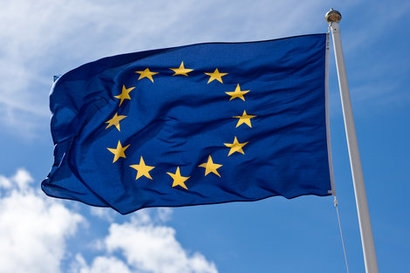
The EESC's European Energy Dialogue event focused on the European Commission's proposed Clean Energy for All Europeans package, seen by a wide spectrum of civil society stakeholders and currently being debated with European institutions and market players. The main concerns relate to the social costs and the financing of the European energy transition, with the topic being discussed widely through all the various panel discussions at the event.
The Clean Energy for All Europeans package has been congratulated by all industry players as a very positive set of measures which brings together, for the first time, energy and climate action into a coherent programme. However, the package also raises some serious concerns to the extent that it has been termed a “regulatory trilemma” by one speaker because of its ambition to combine environmental protection and security of supply with affordability. This has raised some doubts regarding the social dimension, particularly that concerning energy poverty, which is estimated to affect 50 million people in Europe.
“Everyone is in favour of renewables” said EESC President Georges Dassis said, opening the conference. “But the Commission should be careful to ensure that the financing of such energies, which I strongly support, does not weigh equally on those that are at the top and at the bottom of the income pyramid. An energy policy is inconceivable without a social policy”.
Frédéric Coffre, Vice-President of the National Energy Ombudsman Network (NEON) added that the EC’s preferred position seems to rely on technology, smart meters, active consumers, local energy communities and competition to provide a fair deal for consumers. However, civil society stakeholders are asking whether it is realistic to expect people living from pay check to pay check to invest in solar panels or photovoltaic equipment, or to spare the money to buy more energy efficient appliances when they have to choose between buying food and heating their homes. They should not be forced into making investments that they cannot, or are not ready to, make, nor expected to subsidise the investments made by the more affluent. Social tariffs should not be banned but may need to be considered as necessary to protect vulnerable consumers.
Participants also voiced concerns about the job implications of the energy transition, and the need for measures to shield regions that currently rely on the production of fossil fuels such as coal and shale from the adverse consequences of the energy transition.
ETUC's Confederal Secretary Montserrat Mir, also stressed that “an energy transition based on the offshoring of manufacturing activity and the import of low cost goods cannot be a just transition. To keep citizen support we need a transition that creates quality jobs”.
Given that the brunt of funds would have to come from private capital, those present at the event agreed that a stable investing environment to encourage long-term engagement was of paramount importance. The lack of fiscal incentives is the missing element in the Energy Union and price incentives were felt to be the most effective tool to raise awareness and to get people to be creative in a drive to avoid costs and reduce energy consumption.
“Why do we still use public money to support investments that are environmentally harmful?”, asked some of those attending, while others suggested shifting tax away - for example from labour towards carbon – as an instrument which had been shown to produce growth.
While energy scores very low in consumer satisfaction compared to other services, it is also the area where Europe can bring citizens the most tangible benefits, and the Energy Union is potentially one of the few projects around which all 27 Member States can converge.
In closing the conference Pierre-Jean Coulon, president of the EESC section responsible for energy (TEN), said: “Building an Energy Union is not just creating one more institution for the sake of its symbolic value. It is building the capacity for European citizens to live a bit better tomorrow than they did yesterday. This is our role, it is the role of each and every one of us and if there is one way we can achieve this, it is not individually, but collectively.”
For additional information:
European Economic and Social Committee (EESC)
Clean Energy for All Europeans package
The Energy Union and the European Energy Dialogue position paper (April 2017)

